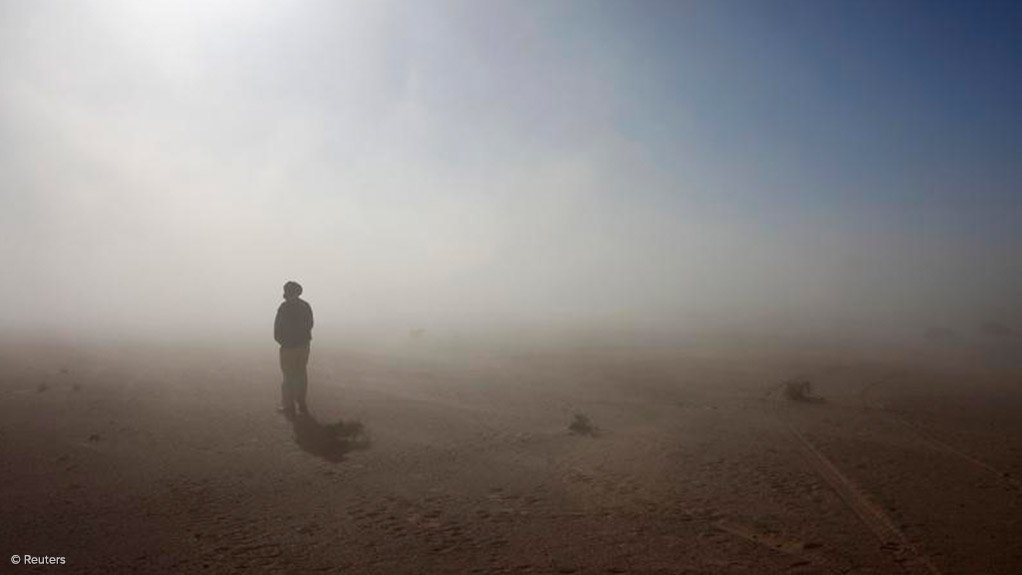Higher minimum and maximum temperatures as well as reduced annual rainfall were predicted for the Western Cape for 2040 to 2060, said Western Cape Economic Opportunities Minister Alan Winde, when addressing the 2015 Landcare Conference at Elsenburg this week.
“The situation demands that we take immediate action,” he warned at the event, which was hosted by the Western Cape Agriculture Department.
Operating sustainably was not only the right thing to do for the planet, Winde argued, it would ensure that “at the tip of Africa we are working smartly to put strategies in place to sustain our sector and secure the future of food security”.
He cautioned that for extensive livestock production, dairy cattle could be impacted by heat stress leading to reduced milk production and, in a worst case scenario, infertility.
Intensive livestock production, which included chickens and feedlot cattle, was also more likely to be impacted by heat stress, which could lead to diseases. The biggest threat facing winter grains was the spread of diseases and weeds.
Conservation agriculture had already been introduced in the Western Cape and, as a result, the province’s wheat farmers had seen increased production and profit, reduced soil erosion and improved water quality and soil health.
South Africa currently imported about half of its wheat, which Winde said made innovation essential to encourage an increase in local production.
“This approach, which is being driven by the Western Cape Department of Agriculture and the Agricultural Research Council (ARC), involves minimum soil disturbance, maximum soil cover and crop rotation.
“An impact study we conducted in partnership with the ARC found the initiative resulted in a R341-million saving. Farmers used less herbicide and it was cheaper to fertilise,” he stated.
To produce a yield of 3 t/ha using conventional methods cost R4 444/ha compared with R2 387/ha for conservation agriculture, making conservation agriculture R2 057 cheaper a hectare.
The Western Cape was also investing in research to ensure a speedy response to the unpredictable environment the province was experiencing.
“In this financial year, the Department of Agriculture’s Research and Innovation unit receives over R100-million. This unit is busy with groundbreaking work. Their trials on the effects of tillage and crop rotation on soil quality are producing the kind of knowledge we need to adapt [to climate changes],” Winde explained.
The unit’s studies on soil management included the development of strategies to enhance soil quality in the province’s grain producing regions.
In the Southern Cape, teams were assessing how to improve the efficiency of pasture systems to produce the best quality of milk.
Winde also highlighted the Fruitlook system, which had helped farmers improve their production, reduced costs and raised awareness around water use.
The system used satellite technology to analyse crop growth and water use.
Further, the Western Cape government had partnered with the University of Cape Town and the agricultural sector to develop the climate change response plan.
The SmartAgri project was being driven jointly by the Department of Agriculture and the Department of Environmental Affairs and Development Planning, Winde said.
The province sought to develop feasible risk management approaches, new technologies and effective implementation for specific climate risks through province-wide workshops.
“We know that extreme weather events are not a new phenomenon,” he noted, pointing out that the province was currently experiencing rising temperatures and a reduction of rainy days in autumn and summer. “There’s also been a progressively later start and end to the rainy season.”
Economically, climate related events cost the Western Cape R3-billion between 2003 and 2008. The agriculture sector was currently the backbone of the province’s rural economy, while 45% of South Africa’s agricultural exports came from the Western Cape.
Coupled with climate change, growth estimates were expected to place increasing pressure on natural resources, specifically posing a major threat to global food security.
By 2030, the population of Africa, which imported $34-billion worth of food, was set to double and 50% of this expanding population would be living in cities.
It was also estimated that, of the 29-million tonnes of food produced in South Africa each year, about nine-million tonnes was wasted or lost, while over 200-million people in sub-Saharan Africa went hungry.
“These are factors we have to consider in our own growth strategies,” Winde said, advising that the province had just approved Project Khulisa, its growth plan for the next five years.
Project Khulisa identified sectors which were growing the fastest and had the highest job creation potential, such as the agroprocessing sector.
Under a high-growth scenario, this sector could add up to 100 000 jobs to the economy and generate R26-billion, an objective Winde believed the Western Cape was well-placed to reach.
EMAIL THIS ARTICLE SAVE THIS ARTICLE
To subscribe email subscriptions@creamermedia.co.za or click here
To advertise email advertising@creamermedia.co.za or click here











